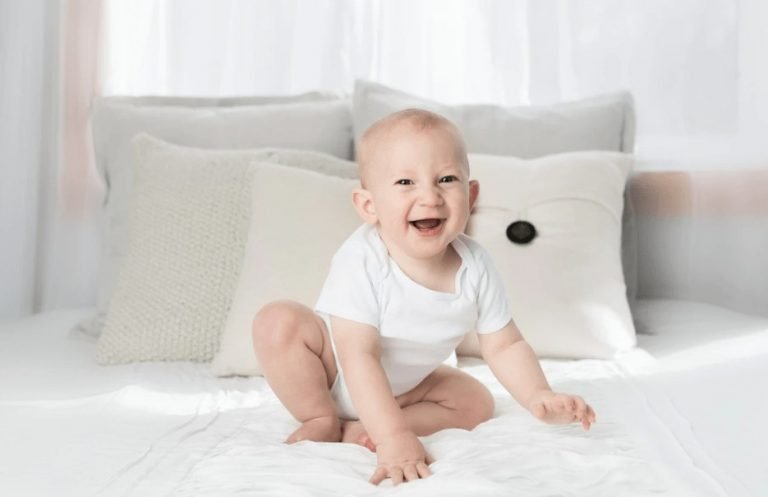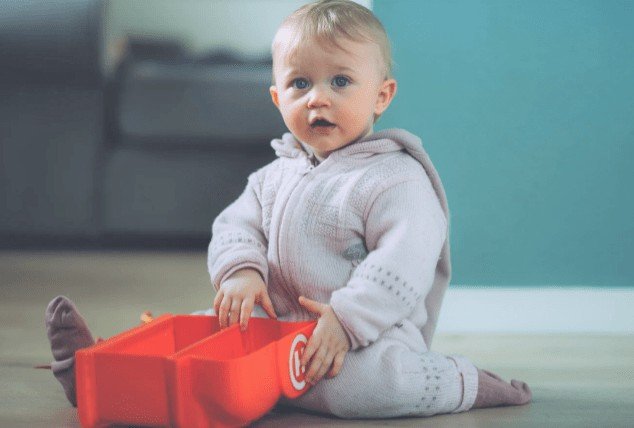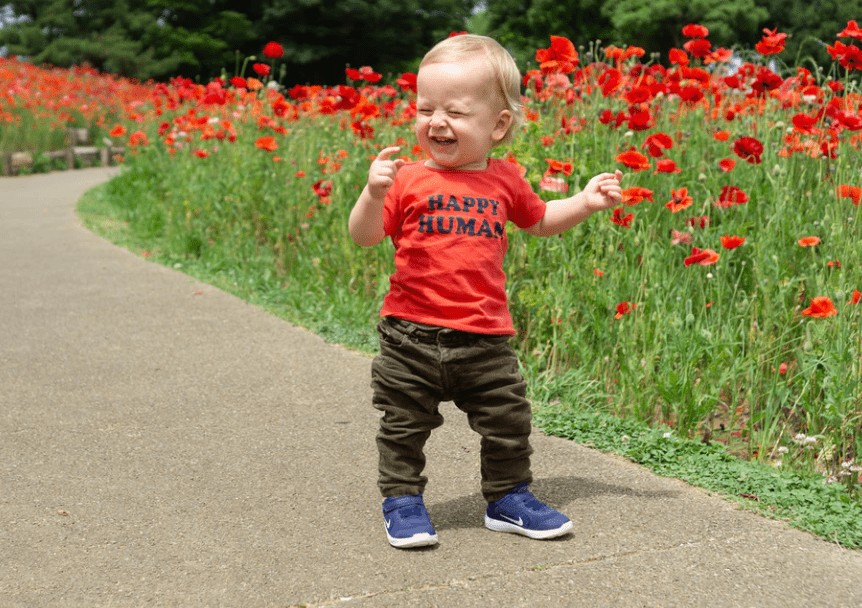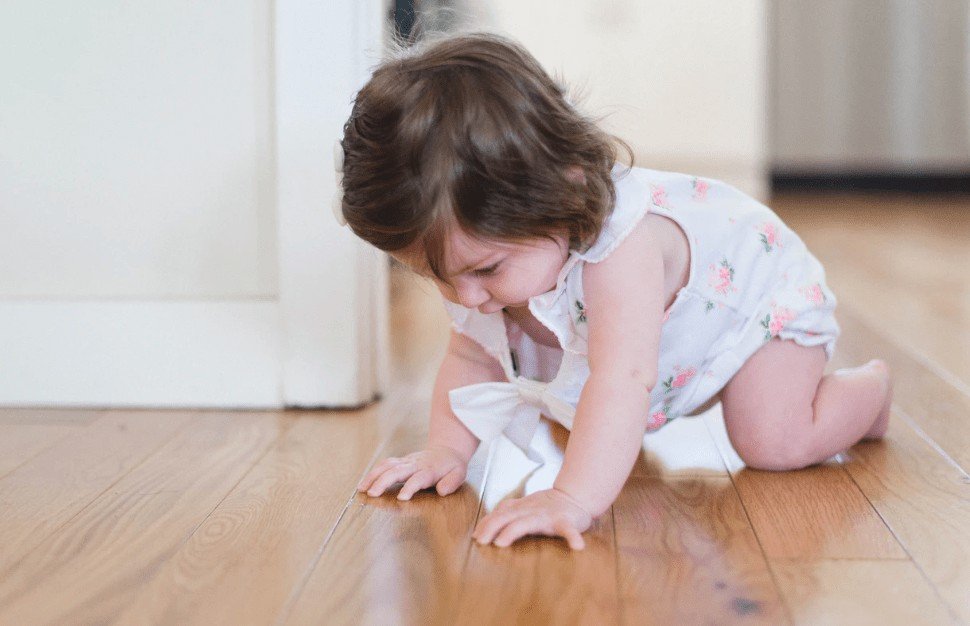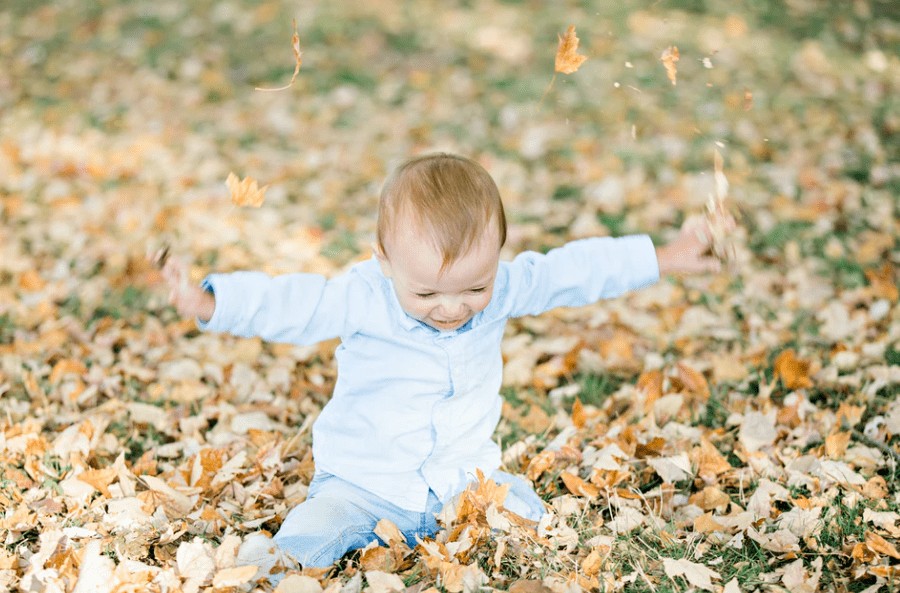Your little tot just turned 6 months. Yes, you made it! Looking back, all those sleepless nights and her endless crying no longer seem that big of a deal. Both you and your little bundle of joy have achieved a lot. Well done! Now that your baby is more expressive and more fun-loving, you two are on your way to becoming best friends. This month, your journey together is to explore solid foods, sleep through the night, and have more fun playing with each other.
At the half-year mark, your little one tends to ignore small simple toys as they no longer amuse her. She is now attracted to toys that blink, move, or make sounds. Fortunately for parents, there are a whole lot of toys available for 6-month-old babies.
What are the most critical developmental milestones for your 6-month-old baby? How can you provide a stimulating environment to boost their development? Read on to find more.
Read More: Developmental Toys for Your 6-Month-Old Baby
Developmental Milestones
Motor Skills
- Rolls from front to back and vice versa: Remember how your little one was rolling from side to side last month? That was to get ready for her new skill this month: to roll from her stomach to her back and vice versa. 6-month-old babies are obsessed with this new skill. They sometimes practice it in the middle of the night!
- Bounces legs when standing: With stronger legs and an increasing desire to stay upright, your little tot now demands more than just sitting up. When you hold her hands and pull her up, she can stand on her feet for a brief period of time. Even though her legs are still wobbly, she nonetheless feels very proud and excited!
- Tries to crawl: It is still early yet for your baby to master crawling, however, nothing stops her from practicing it and getting ready. Give her a round of applause to acknowledge her effort. Additionally, you can provide her a crawling toy to encourage her.
Sensory Development
- Able to see colors: According to American Optometric Association, your 6-month-old is getting better at controlling her eye movements and is developing better eye-body coordination. Another amazing news is that your little one is now having a good color vision and she enjoys the bright colors and fun shades in the world!
Social-Emotional and Cognitive Skills
- Enjoys looking at herself in the mirror: If the floor mirror was there to distract her from the boredom during tummy times, your 6-month-old now enjoys looking at herself in a mirror, as well as smiling at her own reflection. Mirror play is not only a good way for your baby to practice visual tracking but also a good way to help her develop self-awareness.
- Becomes increasingly curious and explorative: It’s no secret that 6-month-old babies are fun-loving babies. Play is the primary way to hone all the skills they have gained recently. Though you will always remain their number one choice when it comes to playtime, now they are content just sitting and playing with toys on their own. They prefer things that are moving, blinking, making sounds, and responding to their actions.

Activities with Your 6-Month-Old Baby
1. Offer A Variety of Toys, Especially Busy Toys
With her ever-growing curiosity and her sharper skills of seeing, hearing, and moving, a whole new world is opening up in front of her. Colors, shapes, sounds, and lights, are the things that attract her attention the most. Before you know it, it’s time to retire some of the older toys and gear as your little tot has moved past the infant toy stage. It’s time to offer more complex stuff for her to explore. Parents should take note though improved mobility also means an increased risk to get hurt. Whatever toys or objects you provide to your little one should be appropriate and safe for her age.
Some play ideas
- Let her play with crawling toys to encourage her to crawl.
- Show her a busy board and let her explore different objects, shapes, and textures.
- Provide her with sensory balls and help her practice picking things up.
- Show her toys that can make noise, dance, and light up.
- Let her feel different things such as water, mist, ice cubes, tree leaves, or flower pedals. But, take note that, she may try to put them in her mouth.
2. Talk, Read, and Sing
In the past several months, you have been reading, talking, and singing to her. Good job. Keep it up! Now that your little tot is able to “talk back to you”, the conversation is no longer a monologue. You may even have a small debate with her. At this stage, you can use complete sentences when talking to her, like how you would when you talk to an adult. Reading should continue to be an important daily activity, except that you may want to replace the fabric books with board books or sound ones.
Some ideas for reading and singing
- Read board books to her. You can also let her flip the pages on her own (she may very well try to taste it in her mouth first).
- Sing songs to her. It can be a baby song, a classic piece of music, or your favorite country music.
- Play music instrument toys with her. If you play real instruments, it’s time for you to show off!
- Play brain-stimulating music for 30 minutes to 1 hour every day. You can find them on YouTube.
3. Make Play Educational
Play is not just simply for fun; it is also a brain-building process. Studies show that play has both direct and indirect effects on brain structure and functioning. That means the play has a physical impact on your baby’s brain. Jaak Panksepp, a neuroscientist, and psychologist suggest that play is 1 of 7 innate emotional systems in the midbrain. That’s why parents are eager to find toys and activities that can be educational and fun at the same time.
How to make play fun and educational
- Show her toys with themes. For example, plush toy sets, and engineering-based toys.
- Read her books on STEM subjects.
- Play with busy boards where she can learn about cause and effect.
- Play with toys that can say words or make sounds to enrich her vocabulary.
Sources
Object permanence: https://www.simplypsychology.org/Object-Permanence.html
Last: 5-Month-Old Milestones and Activities
Next: 7-Month-Old Milestones and Activities

Dr. Leah Alexander, MD, FAAP began practicing pediatrics at Elizabeth Pediatric Group of New Jersey in 2000. She has been an independently contracted pediatrician with Medical Doctors Associates at Pediatricare Associates of New Jersey since 2005.

